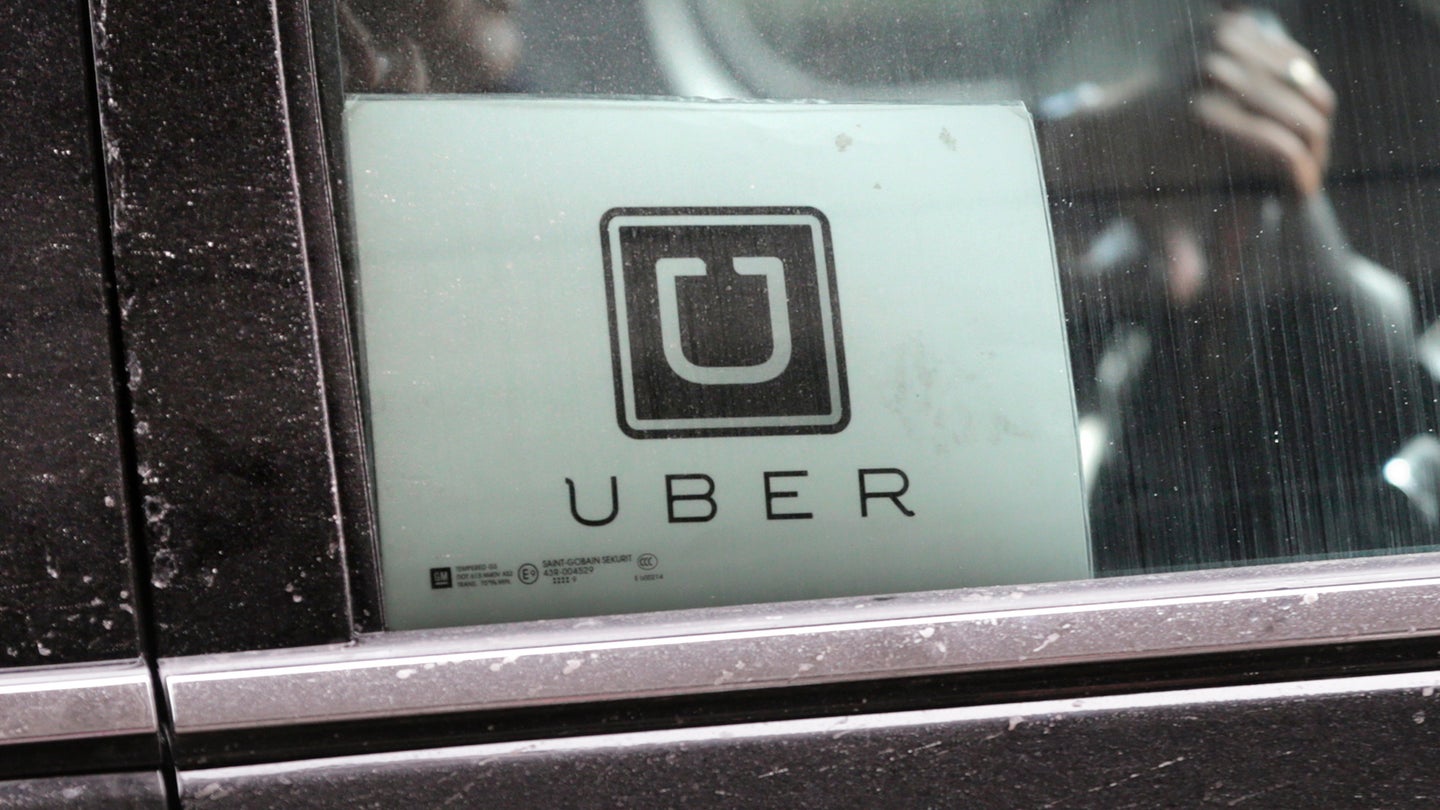Uber Sues New York City to Overturn Cap on New Ride-Hailing Vehicles
Uber calls the new regulation that aims to limit the number of new drivers a ‘ban first, study later’ approach.

Uber is the latest ride-hailing company to challenge new regulations enacted by New York City. The company has filed a lawsuit to block a one-year cap on new licenses for ride-hailing vehicles voted into law last summer, reports The Verge.
The cap was part of a package of legislation passed by the New York City Council last summer, which also included a law mandating a minimum wage for drivers. New York is the first major U.S. city to attempt to regulate companies like Uber. Ride-hailing has proven immensely popular, but that has led to concerns over traffic congestion and driver pay. The one-year cap was enacted to give officials time to study those and other issues related to the business.
In its lawsuit, Uber said the cap amounts to a "ban first, study later" approach that won't solve the problems officials claim to be addressing. Uber argued that the cap will impact residents outside Manhattan, which the company claimed are underserved by taxis and that there is no evidence a cap will "meaningfully impact congestion."
An Uber spokesperson told The Verge that the cap will also prevent new drivers from receiving the higher wages resulting from new regulations enacted as part of the same package of legislation. The spokesperson said Uber supports congestion pricing as a way to reduce traffic. Already in use in some European cities, this would add a fee for all vehicle entering the city center, and has been discussed as a possibility by New York Governor Andrew Cuomo.
The number of ride-hailing vehicles in New York City from Uber and other companies increased from 63,000 in 2015 to over 100,000 today, and those vehicles have added significantly to the number of miles driven in the city, according to a recent study by transportation consultant Bruce Schaller.
Ride-hailing has also had a negative economic impact, advocates of regulation claim. Competition from Uber and other ride-hailing companies has seen the value of New York City taxi licenses, called medallions, plummet. Some heavily indebted drivers have committed suicide.
"Uber thinks it is above the law," Bhairavi Desai, executive director of the New York Taxi Workers Alliance, said in a statement. "The company wants the right to add more and more cars to our streets without limit. But there is a very human cost to Uber's business practices."
Alongside the cap on new vehicles, city officials also passed a law setting a minimum wage for drivers. The law, which went into effect February 1, set the wage floor at $17.22 an hour after expenses, or $27.86 before expenses. Uber rival Lyft sued to block implementation of the law but later agreed to pay its drivers the higher wages.
